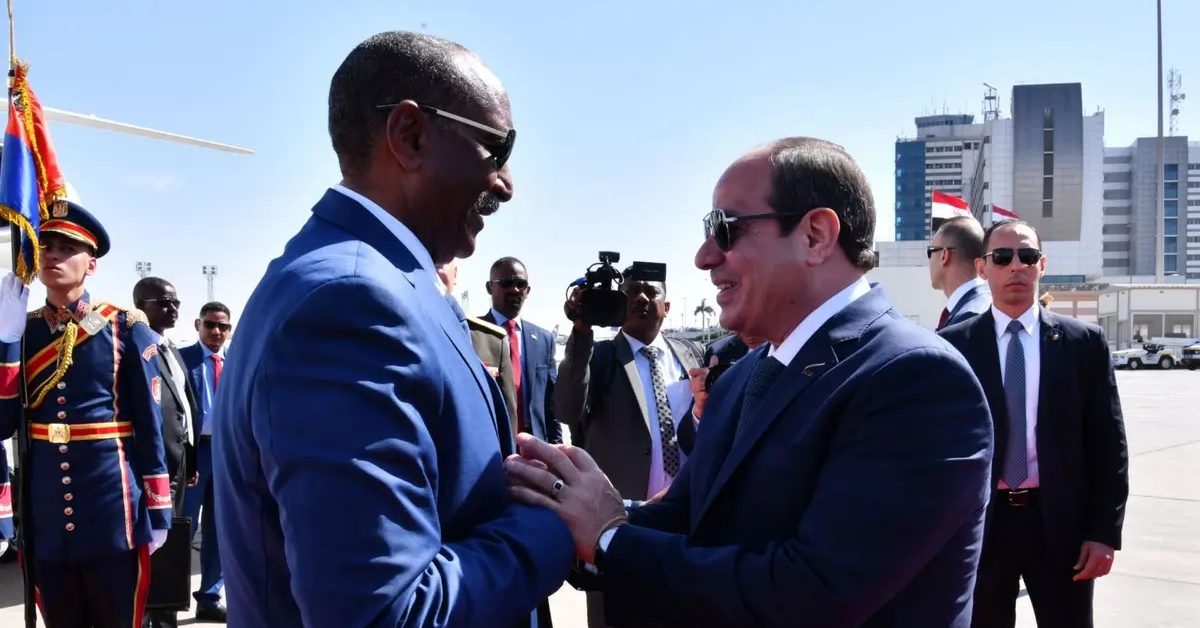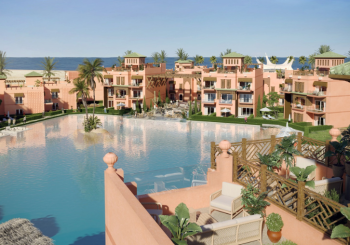All around Egypt’s borders, African countries descend into a widening arc of civil wars and state collapse. To the south, Sudan is divided, and South Sudan teeters between fragile peace and renewed conflict. To the west, Libya remains fractured by militias and competing governments.
As turmoil and unrest escalate across the neighboring nations, Egypt acts as a central mediator, striving to safeguard stability along its borders.
“Egypt, as a peace-making nation, is eager to actively engage in mediation and resolving disputes alongside supporting efforts aimed at attaining stability and development,” former Egyptian Foreign Minister Sameh Shoukry said in July 2024 about conflicts in the region.
Egypt leverages its diplomatic, security, and developmental tools to resolve disputes and support fragile states in response to the civil wars in Sudan and the protracted political and militia conflict in Libya.
First deployed in 1960, Egypt has since maintained a longstanding strong diplomatic relationship with the United Nations (UN) peacekeeping, having participated in 37 missions across Africa, Asia, Latin America, and Europe.. The country also has nearly 3,000 troops and police officers deployed in nine African operations.
As of May 2021, Egypt stood as the fourth-largest contributor of troops to the UN’s Multidimensional Integrated Stabilization Mission in the Central African Republic (MINUSCA). With 990 peacekeepers deployed to the Central African Republic (CAR), the troops protect civilians, secure mission bases, and escort humanitarian convoys. The nation’s involvement in MINUSCA reflects its commitment to promoting stability in Africa, aligning with its broader foreign policy objectives and contributing to regional peace and security.
Beyond direct mediation, Egypt invests in training and capacity-building programs. The Cairo Center for Conflict Prevention and Peacekeeping in Africa, established in 1994. The center provides training for all those involved in conflict resolution, enhancing the capabilities of African states to manage and resolve conflicts.
In recent years, the country’s efforts have become more visible as violence and instability jeopardize regional security and economic prospects.
Sudanese Civil War
Since the eruption of Sudan’s civil conflict in April 2023, Egypt has emerged as a mediator, citing its longstanding ties with Khartoum and its strategic interest in regional stability.
The country has strongly expressed opposition to the Rapid Support Forces’ (RSF) attempts to establish a parallel government in Sudan, emphasizing support for the Sudanese Armed Forces (SAF), and rejecting external interference.
It has aligned closely with the SAF, led by General Abdel Fattah Al-Burhan, offering military support, including intelligence-sharing and tactical assistance, while hosting negotiations and advocating for a political transition.
The depth of Egypt’s involvement became starkly evident during the Battle of Merowe Airport, April 2023, when the RSF captured around 200 Egyptian soldiers who had been participating in joint military exercises, who were later released and returned home shortly thereafter.
Although Egypt has convened regional summits and quietly mediated discussions between the SAF and RSF, these efforts have not yet resulted in a durable ceasefire or meaningful progress.
South Sudanese Civil War
The outbreak of South Sudan’s conflict began in December 2013, following a political struggle between President Salva Kiir, leading the Transitional Government of National Unity (TGoNU), and his former Vice President Riek Machar, leading the Sudan People’s Liberation Movement-in-Opposition (SPLM-IO).
President Abdel Fattah Al-Sisi has publicly supported the 2018 and 2020 peace agreements between the opposing sides in South Sudan, offering technical assistance, humanitarian aid, and backing efforts to stabilize the country.
Reaffirming Egypt’s continued support for South Sudan, Al-Sisi visited Juba, the capital of South Sudan, in November 2020, marking the first time an Egyptian president visited South Sudan.
However, the process faced significant challenges. In March 2025, Machar was placed under house arrest by security forces, accused of inciting rebellion. His party, the SPLM-IO, declared that the 2018 peace deal had effectively collapsed, ending the power-sharing arrangement.
As of now, the country remains fragile, with periodic violence, political deadlock, and a worsening humanitarian crisis.
Libyan Civil War
Since the 2011 ousting of Muammar Gaddafi, Libya has faced ongoing instability, characterized by divided governance and militia control. The country is split between the UN-recognized Government of National Unity (GNU) in Tripoli, led by Prime Minister Abdulhamid Al-Dbeibah, and a rival administration in the east, supported by military commander Khalifa Haftar. Recent events in May 2025, including the assassination of militia leader Abdulghani Kikli, have led to intensified clashes in Tripoli, resulting in multiple deaths and highlighting the fragile security situation.
Libya’s protracted civil war has drawn in multiple foreign mediators, including Egypt. Given the close link between its own security and Libya’s stability, Egypt has adopted a diplomatic approach toward Libya.
In June 2020, Egypt announced the Cairo Declaration, calling for all parties to remove all foreign mercenaries and dismantle militias, and proposing a ceasefire and political roadmap to resolve the conflict, to no avail.
Egypt further attempted to bring order to the distraught country by facilitating meetings in January 2023, attended by senior Libyan officials, who agreed to develop a clear roadmap to hold elections.
In early 2025, Egypt hosted high-level talks in Cairo between Libya’s rival legislative bodies, resulting in an agreement to unify the executive authority and outline a roadmap for national elections. The meetings included 96 members of the Libyan House of Representatives and 75 from the High Council of State, who pledged to reform state institutions and support election preparations.
The final statement stressed Libya’s sovereignty and the need for continued joint meetings. However, progress has been stalled by ongoing disputes and a lack of consensus between the factions.
Egypt, a representative of Africa on the UN Security Council and the African Union’s Peace and Security Council, advocates for African interests on the global stage. As instability continues to affect the region, its actions signal a sustained commitment to advancing stability and fostering dialogue across Africa’s crisis zones.







Comments (0)